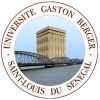Founded in 1990, initially as Université de Saint-Louis, the university was renamed in 1996 Université Gaston Berger (UGB) de Saint-Louis. UGB has 303 faculty divided into 8 departments (Unités de Formation et de Recherche) and one stand-alone institute with the status of department, 529 administrative personnel, of whom 232 are women, and 11,643 registered students (for 2017) distributed in the different departments. Since 1996, UGB’s core mission is “to train superior cadres for Senegal and other countries, to contribute to scientific knowledge at the national and international levels, to promote and develop African humanistic values”. In 2015, were added three additional missions: promotion of applied knowledge in technology and scientific innovation; service to the community; promotion of international academic cooperation. These latter missions of UGB match HaB’s vision in its effort to reconfigure the ties between the academic and community spaces, but also in its innovation in pedagogical interventions.
Two axes of collaboration between UGB and HaB have been established: i) through the Street Food project; ii) through the development of a dialogic Africa-Asia space. UGB seeks to deepen its engagement with HaB. It will facilitate, in the limits of its resources, access and use of its infrastructures in the HaB 2.0 programmatic framework of cultural and scientific collaboration. It will facilitate the organization of an experiential space of education and community-based pedagogical intervention with the intention of promoting an intra-regional (panafrican) critical dialogue and inter-regional (South-South; North-South).
The Faculty of Civilizations, Religions, Arts and Communication, through its Commission for Cooperation, and its various affiliated laboratories and research groups, will act as the HaB institutional space’s umbrella.
The first phase of HaB helped create a new local social network, and a collection of information around the subject of street food. In parallel, elements of a pan-African dialogue were established along with an Asian-African platform. The second phase of HaB will intensify the pedagogical offer towards the local communities, through experiential schools, festivals and fab-lab (small scale workshops), and through the deepening of exchanges at the intra and inter regional level within the network. It is during this phase that we envisage concrete collaborative forms that should range from the inclusion of a discovery module in the curriculum of the students of the UFR of civilizations, religions, arts and communication to the participation in a HaB Master program. We will concomitantly seek to establish a physical space within the university, or in the city of Saint-Louis, capable of embodying and sustaining the vision and approach of HaB.
We anticipate to collaborate with a number of HaB partners, including, for the pan-African and ‘Africa-and-the-World’ subject, with the University of Ghana, the institutes of Burkina Faso and Mali, and with the University of Dar es Salaam in Tanzania. Outside Africa, we intend to deepen our collaboration with IIAS, Colegio de Mexico, Ambedkar University Delhi and Kyoto Seika University. For the program on Ecology and Food, we would like to collaborate with Madras Institute of Development Studies and their regional counterpart The French Institute, in Pondicherry. We hope to extend this collaboration to Ambedkar, Mandalay and Chiang Mai Universities.
Locally, we will continue to anchor our activities in the community through collaborations with: the community resilience organization ‘Association Hahataye – Sourires de Gandiol’, based in Saint-Louis, very active on sustainable environment and agriculture matters, and green architecture; association Slow Food Jarino li nu moon, also based in Saint-Louis, that promotes “good, clean and fair food”. At the national and regional level, we will continue our collaboration with the Dakar-based African think-thank Codesria, aimed at promoting African intellectual autonomy and south-south dialogue.
Contact Persons:
Dr. Patrice Corréa, Director Department Civilizations, Religions, Arts and Communication
Dr. Abdourahmane Seck, professor of Anthropology and HaB PI



